|
by Christopher Kelen
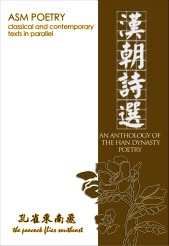 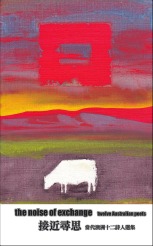 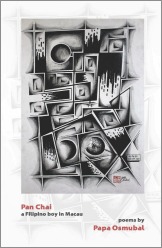
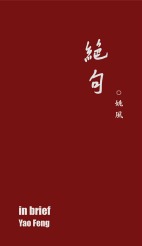 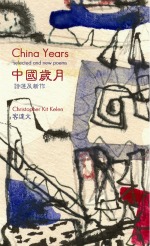 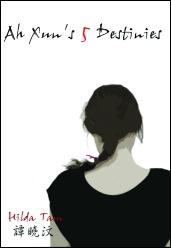
ASM (Association of Stories in Macao), a non-profit NGO operating in the Macao SAR (Special Administrative Region of China), has over the last six years published sixty volumes, in the genres of poetry, fiction, theory, life writing and pedagogy. ASM is a community publisher, dependent on sales, subscriptions and arts body funding for printing costs and various publishing and translation-related activities. Many of ASM's titles are first volumes of poetry or fiction by young Macao authors. The brief of the organisation is to promote writing and other artistic expression in and about Macao. An important part of ASM's ongoing activity is poetry translation by Macao poets, involving English, Chinese and Portuguese languages and in all possible directions. The function of ASM's various poetry translation projects is to facilitate the East-West cultural crossing entailed in bringing poetry to the non-native reader; equally important is the goal of providing Macao poets with a cross-cultural apprenticeship in poetry, through the vehicle of translation practice. ASM's ethos is democratic and inclusive. Seeing poetry and publishing as empowering cultural processes, ASM aims to teach and encourage new Macao poets, translators, publishers, artists, cover and book designers, event organisers and others involved in the business of publishing, through hands-on cooperative experience. Working largely in (and to and from) English in a non-English speaking environment, ASM's counter-intuitive goal is to build a culture of reading for a new literature, through the creation of a circle of new writers. The activities described take place in and out of Macao, with the participation of and for the benefit of Macao citizens. Macao is a city in south China, a Special Administrative Region of the People's Republic. In 1999 it was the last of Europe's colonial possessions in the Far East to be returned. It is China's only city with (legal) casinos. Macao is a mere dot on the map. Yet this 28 square kilometers (at the time of writing), current population 600,000, is among other things, the world's most crowded territory. Macao has historical and geo-political importance far outstripping any first impression given by the collection of facts just cited. That importance has to do with Macao's various kinds of uniqueness, for instance in intercultural terms. Macao is, for its size, home to a remarkable number of poets and also visual artists. ASM's 2008 anthology I Roll the Dice – Contemporary Macao Poetry represented work of more than 120 Macao poets, of whom roughly 100 were still living at the time of publication. That English-language collection included roughly twenty Portuguese language poets and about thirty (mainly ethnically Chinese or Macanese) writing in English. We can say that, as with Hong Kong, in the case of Macao, a quite particular sub-national identity is at stake and in evidence in cultural production. Macao has borne the symbolic burden of being for several hundred years (till 1831) the principal portal between China and West. There is a powerful sense of the place in toto as transnational and liminal East-West space. Macao, as portal space, as a city of poets with cross-cultural credentials, is a particularly appropriate site for the work of poetry translation. ASM's work has been, since inception, centered around the teaching of creative writing at the University of Macau, with a number of graduate students publishing their thesis work as first volume. Various poetry workshops (on and off-line), including the 1958group and flying islands poetry, have provided mentoring and encouragement for young Macao poets and translators of poetry. An annual creative writing competition, an Asialink Writer-in-Residence position at the university, regular book launches, readings and other fundraising events and activities ensure ASM's continuation at the forefront of a vibrant creative publishing culture in Macao. Over the past five years a major emphasis in ASM's work has been on the translation of classical Chinese poetry into English and of contemporary poetry in both directions (English-Chinese, Chinese-English). These activities have resulted in the publication of numerous volumes of poetry in parallel text format. They have also provided dozens of young Macao writers with a valuable apprenticeship in both poetry translation and poetry writing. Classical poetry translation projects have focused on the writing of women from various dynastic periods. Parallel text volumes of poetry by the following Chinese classical poets have been published: Meng Jiao, Xin Qiji, Li Yu, Nalanxingde, Li Qingzhao, Yu Xuangji. Collections of the poetry of Liu Ru Shi and Zhu Shuzhen are on the way. As well there have anthologies of women poets of the Song and Tang Dynasties (the most extensive ever published) and more general anthologies of Yuan and Han Dynasty poetry. The reason for focusing on women poets has been two-fold—firstly, they have been under-translated (and under-represented in, for instance, dynasty-based collections); secondly, most of the project participants are women. Resulting from residential workshops in Australia over the last three years, ASM has to date published two large scale parallel text (English-Chinese) anthologies of Australian poets: Fires Rumoured about the City – Fourteen Australian Poets (in 2009, 460pp) and Wombats of Bundanon – Twenty Australian Poets (in 2010, 520pp). Over the past three years, through ASM, ten young Macao poets have enjoyed residencies in Australia, sponsored by the Bundanon Trust. Bundanon is an artist's colony established on the extensive grazing property left to the Australian nation by the painter Arthur Boyd. With artists' studios, musicians' and writers' cottages, as well as a dance facility, it is a place for cross-arts creativity and sharing; and it is an apt location for young Macao poets to meet and work with the Australian poets they are translating. A third volume in the ASM Australian Poets series, result of a 2011 poetry translation residency at Bundanon in NSW The Noise of Exchange – Twelve Australian Poets, is currently in preparation and expected to be published before the end of the year. ASM's publication of these Chinese language volumes of Australian poets has to date been funded by the Macao Foundation, the Macao Institute of Culture and some other local arts funding organisations. The fourth volume in the series will be of West Australian poets, the product of workshops to be held at the Westerly Centre, University of Western Australia, this coming November. That should see publication sometime in 2012. Further down the track, a volume of Australian expatriate poets and a bilingual volume of poetry for children are planned.
Editors' note: Leung Ping-Kwan's Amblings, translated by Kit Kelen et al. and published by ASM, is reviewed in this issue of Cha by Douglas Kerr. |